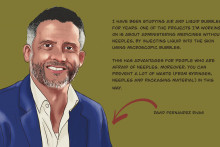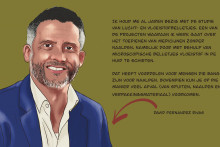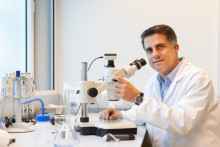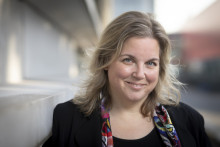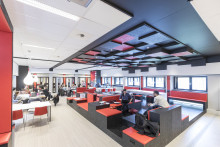The open event will be held on the 18th of April in the DesignLab at the UT, and is supported by the Nationale Wetenschap Agenda, MESA+ Institute and Techmed. It will welcome various scientists, tattoo artists, medical doctors and other stakeholders, who will all come together to discuss ‘how to use modifications of our skin more than just for decoration’, as David Fernandez Rivas puts it.
‘More than just coolness’
‘People have been getting tattoos for centuries. Already Cleopatra had tattoos,’ points out Fernandez Rivas. ‘But not many know that tattoos have been used for more than cosmetics. For example, tattoos help camouflaging vitiligo or alopecia, and to redraw nipples on the breast of women after mastectomy. According to conservative estimates, there are about 122 million people with tattoos worldwide, and European countries are among the most tattooed. That shows us that people are willing to carry things in their skin. Can we use this to bring more than just coolness?’
The UT scientists envisions that, among other possibilities, we could use our skin to monitor our health. ‘Wearable technology is extremely common nowadays. Instead of wearables we could think of “implantables”. Small chips or sensors that could be placed under the skin for various purposes. One example could be tattoos that change colour based on your glucose level, and therefore function as a monitoring system for diabetics. For such applications we would need different types of inks, of course.’
Needle-free injections
David Fernandez Rivas himself is working on skin related research. Within his spin-off InkBeams, the scientist is developing a portable needle-free injection method. ‘By using lasers, we create a bubble and as it grows, it pushes the liquid into the skin,’ he explains. ‘The method already works in the lab settings. Now the question is: once it’s ready, what will we inject into the skin? Electronic nanochips? Novel inks? Biosensors? What is it that society needs and what are people actually ready to accept?’
These and other questions will be addressed during the event in April. ‘There will be many interesting experts coming,’ says Fernandez Rivas. ‘Our ambition is to form a consortium and start joint research focused on using our skin in novel ways.’ Besides discussions on ‘the future of our skin’, the event will feature live demonstrations of novel and old technologies, including a surprising performance.



